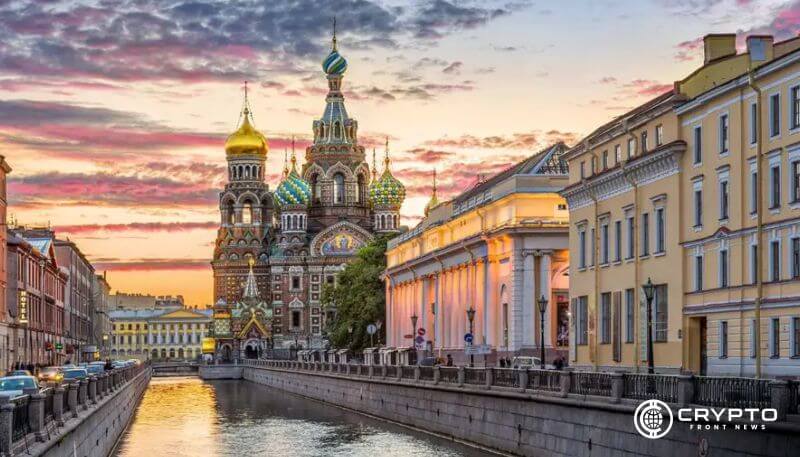- Russia is set to establish two crypto exchanges in Moscow and St. Petersburg, focusing on global trade expansion.
- The exchanges will initially cater to subsidiaries of major companies, with stablecoins pegged to the yuan and BRICS currencies.
- The initiative faces skepticism due to concerns over adoption, sanctions risks, and the legal framework for stablecoins in Russia.
Russia is making strides in the cryptocurrency sector by planning to establish two new crypto exchanges, one in Moscow and the other in St. Petersburg. This initiative, reported by the local media outlet Kommersant, aims to bolster global trade by integrating crypto transactions within the country’s economy.
Crypto Hubs in Major Cities
The proposed exchanges in Moscow and St. Petersburg are expected to operate under an experimental legal regime. This framework is necessary because current Russian laws do not provide clear guidelines for the functioning of crypto exchanges.
By setting up these hubs, Russia intends to create stablecoins pegged to the Chinese yuan and a basket of BRICS currencies. These exchanges will initially serve a limited group of users, including subsidiaries of prominent companies, while small and medium-sized enterprises and individual traders may not have access in the initial phase.
Focus on Stablecoins and Legal Challenges
One of the primary objectives behind these exchanges is to facilitate the creation and use of stablecoins. These digital currencies will be pegged to established foreign currencies, providing a more stable medium of exchange in international trade. However, there are significant legal and technical challenges associated with stablecoins in Russia. Issues such as convertibility, liquidity, and the overall technological implementation within the Russian blockchain system are still unresolved.
Skepticism and Sanctions Concerns
Nikita Vassev, the founder of TerraCrypto, has expressed skepticism about the adoption of these new exchanges and the stablecoins they aim to promote. According to Vassev, those who have alternative options may prefer to continue using established international platforms rather than switch to domestic ones. He suggests that only those who have no other choice would resort to using these new Russian platforms.
Experts also warn of potential risks, particularly regarding sanctions. Transactions made on these platforms could be tracked and added to sanctions lists, leading to the blocking of transactions and a possible loss of trust in these exchanges.






